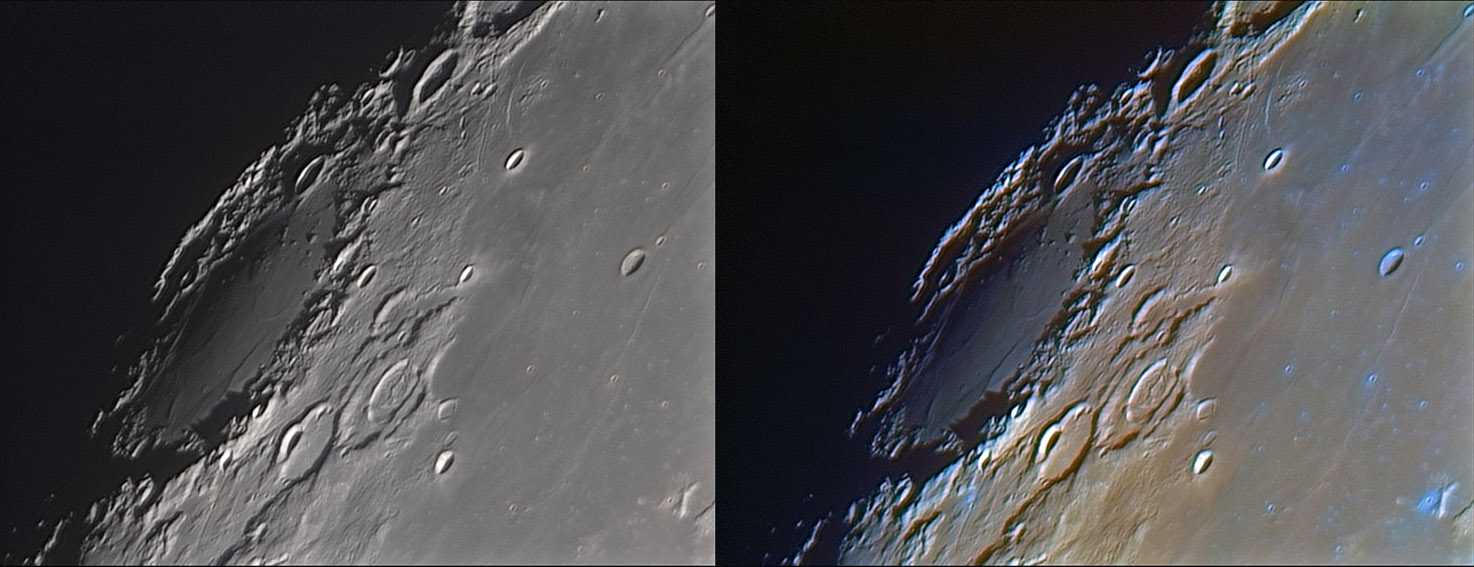November 3, 2022
Colorful Grimaldi
Originally published December 9, 2012

image by Maximilian Teodorescu, Dumitrana (Ilfov), Romania
Max brings color to the Moon, which makes it more interesting. Pity that the color has to be added and intensified.
Think what it would be like if our Moon had the colors of Mars or Earth. The orangish hue that Max finds along the
eastern edge of the Grimaldi Basin outer ring would be natural, indicating rust that transformed iron in rocks that
had been oxidized at an earlier time when oxygen was more common in an assumed lunar atmosphere. Or perhaps
bluish color casts would come from hoar frost, with reported green hues due to plants as Val Firsoff thought
might survive on the Moon. In earlier centuries when it was assumed that all worlds and even the Sun were homes
for intelligent creatures, it should have been disappointing that the lunar life was essentially colorless. Earth is full
of color, including the dark green of forests, ruddy deserts, glistening snow and ice, glints of wine-dark seas, peripatetic white clouds, and even pinpoints of brightness due to city lights. I am not aware that any 17th or 18th century
observers used the Moon's monochrome hues to argue against life as we know it.
Chuck Wood
Technical Details
November 26, 2012, 23:25 U.T. C 11 @f/20, DBK 41 AU02.AS with IR-pass filter (685nm), 2800 frames in 5-6/10 Seeing. False color data extracted from IR data, then inverted and superimposed onto the grayscale version of the image.
Related Links
Rükl plate 39
21st Century Atlas chart 26.
Yesterday's LPOD: Gravity Worms
Tomorrow's LPOD: Sir Patrick, R.I.P.
COMMENTS?
Register, Log in, and join in the comments.



